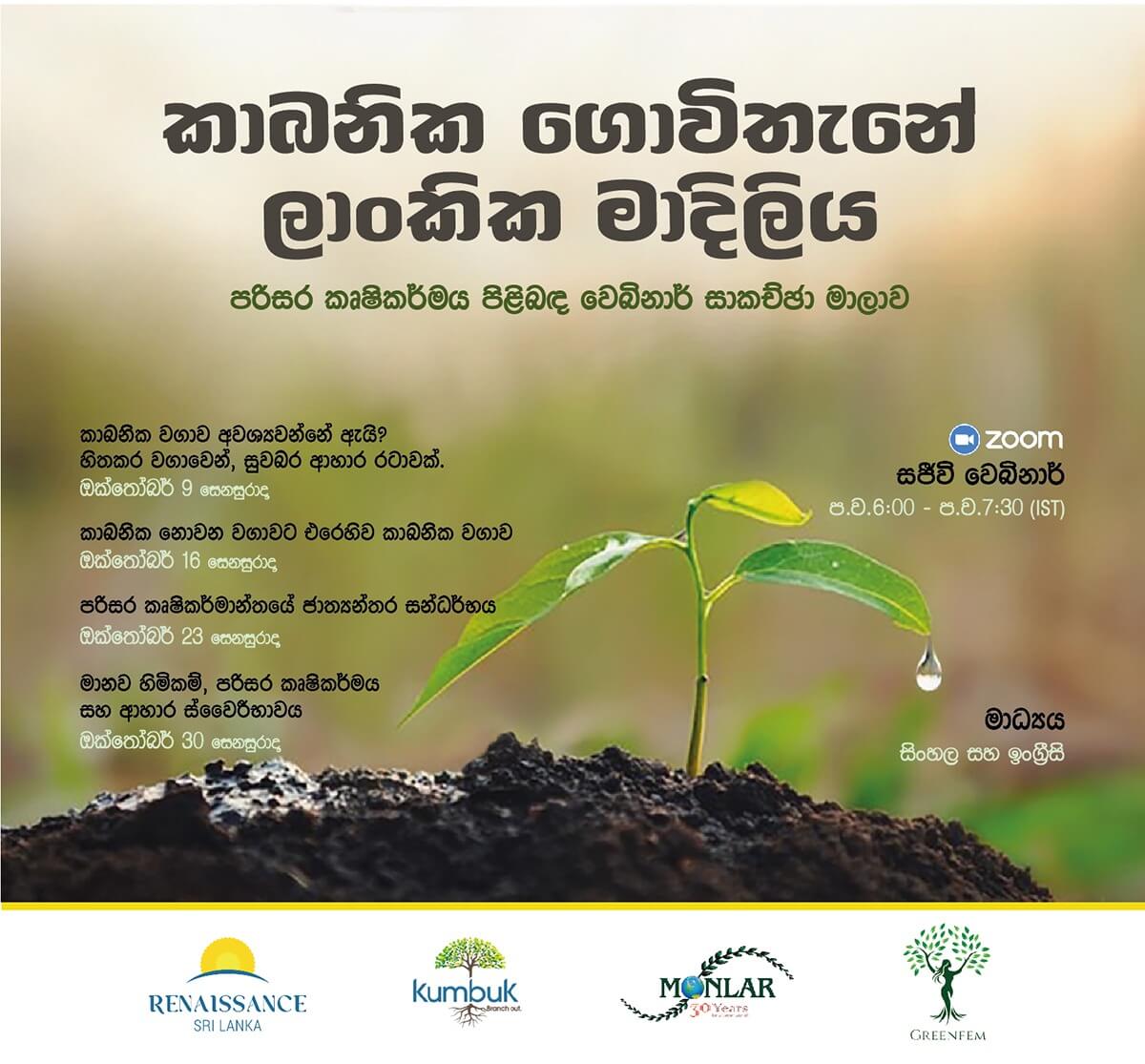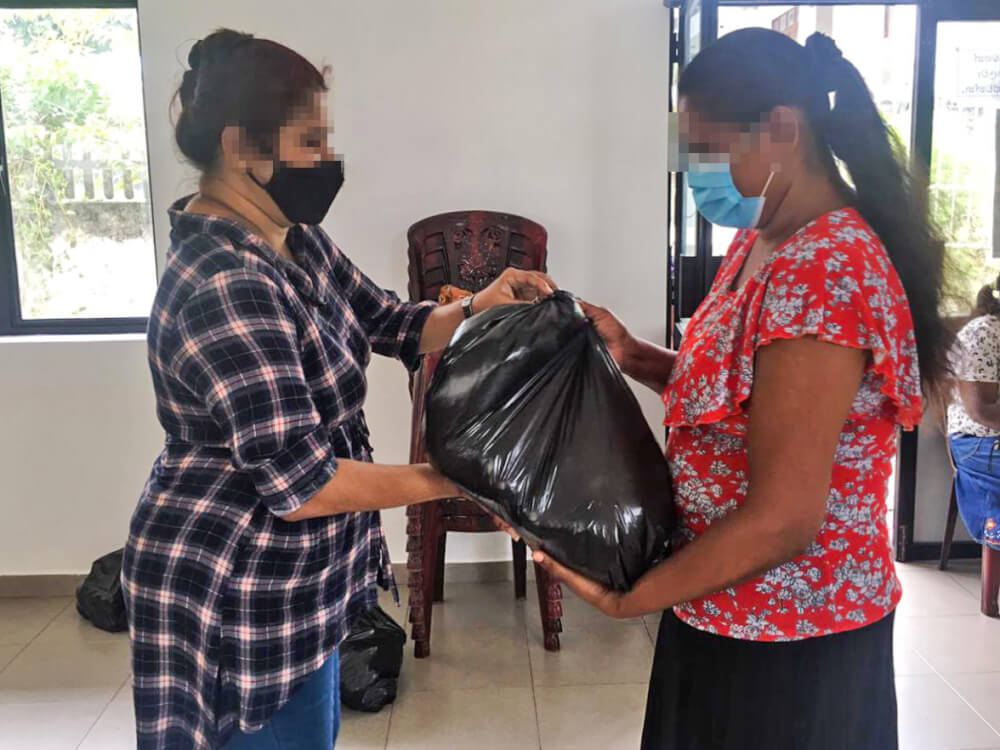Sustainable agriculture in Sri Lanka: are organic fertilisers a solution?
In recent months the Sri Lankan government has taken further steps in its efforts to promote greener and more sustainable agricultural practices in the country. As will be explored below, some have questioned the true negative effects of chemical fertilisers and whether the use of organic fertilisers themselves can really be sustainable either.
Why the ban on chemical fertilisers in Sri Lanka raises questions
In an attempt to become the first country to have its entire agricultural production completely ‘organic’, in April 2021 the cabinet of Sri Lanka approved the ban of the importation of chemical fertilisers and agrochemicals.
While the intention and desire for Sri Lanka to take on a more sustainable agricultural approach has often been praised, concerns have been raised over the practicalities of such a sudden ban and the lack of guidelines, procedures and support in place in order to effectively convert the majority of Sri Lankan agricultural practices to keep in line with these new mandated policies.

Why Organic Fertiliser has been introduced in Sri Lanka
The banning of chemical fertilisers is inspired by the Sri Lankan governments focus on its mandate to promote and popularise organic agriculture. This policy is based upon claims of the negative effects of using chemical fertilisers, and notably a connection that has been drawn between the use of chemical fertilisers and an increased incidence of cancer and chronic kidney disease being found within farmers within the Dry Zone. However, the direct relationship between chemical fertilisers and these illnesses has been queried.
Additionally it is claimed that the quality of chemical fertilisers cannot be guaranteed, with some products not even reaching the minimum standards due to their chemical and nutrient composition being potentially inconsistent, or even dangerous. This is compounded by the misuse or overuse by farmers, either through lack of awareness or deliberate, indiscriminate application resulting in a range of issues – including increased soil acidity, reduced soil fertility and biodiversity as well as negative impacts on yield and quality of yield.

What have been some of the pushbacks / criticisms of Organic Fertiliser?
While there is an understanding of the desire for greener agricultural practices within Sri Lanka, fears have been raised that the switch to organic fertilisers could cause its own set of problems and whether the real problem with chemical fertilisers is poor quality control and misuse.
The lack of organic fertilisers
One of the largest problems identified with the sudden banning of chemical fertilisers is the lack of organic fertilisers currently available for farming practices. The Land and Reforms Commission will be investing 700 million rupees in a project dedicated to the production of organic fertilisers, which will then be sold to the Ministry of Agriculture with the resulting profits fed back into organic fertiliser production.
However, right now the Department of Agriculture registered producers and municipal councils are producing 0.22 million tons of compost annually, with estimations that organic paddy cultivation alone requires nearly four million tons of compost, with tea plantations requiring an estimated additional three tons.
The increase of the price of tea
Additionally, it has been suggested that the use of organic fertilisers within tea plantations will dramatically increase the price of tea to ‘uneconomic levels’. In order to achieve the same results as chemical fertilisers, very often much greater volumes of organic fertilisers are needed. This could result in tea costs very rapidly rising due to the expanding production costs and lower yields resulting from the use of organic fertilisers.

The need to educate farmers into sustainable practices
Owing to the nature of organic fertilisers, the composition of nutrients within fertilisers could vary massively and require the further education of farmers into sustainable practices when using organic fertilisers and the necessary balances between fertiliser composition, harmful practices and quality yield and production.
It is similarly important that both sufficient education and legal interventions are introduced in order to prevent large-scale organic fertiliser producers from introducing low-quality, harmful or unnecessary materials into the fertilisers. There is fear that a lack of regulation could result in the introduction of toxic or pathogenic materials into fertilisers in order to increase production volume, including sewage or municipal waste.
The risk of an over addition of certain chemicals
The use of organic fertiliser could also result in the over addition of certain chemicals within soil as farmers try to match the level of nitrogen contained within chemical fertilisers by overcompensating with the application of organic fertiliser. This could result in an accumulation of other chemicals like phosphorous and potassium contained within organic fertilisers.
The threat of deforestation
The increased need for organic fertilisers could even inflate the risk of deforestation and reduced biodiversity. An attempt to make up for the potentially decreased crop yields resulting from the use of organic fertilisers, will mean more forests will need to be cleared for farming and agriculture.
What are some of the solutions for a greener Sri Lanka?
Many of the ideas discussed in creating a greener Sri Lanka and being able to achieve a shift away from chemical fertilisers require a more holistic approach. Looking at indigenous knowledge and more sustainable farming practices previously used, past practices with demonstrable benefits may offer a part of the solution to the future of agriculture.

Agricultural practice in Sri Lanka can switch to organic farming as many solutions exist, inspired from indigenous farming practices, and adapted to Sri Lanka’s climate and environment – Pexels Jonathan Petersson
Reforesting the hill country
This includes the reforestation of the hill country in order to protect the top soil from erosion and help improve agriculture within the country, as this area previously served as the main water reservoir for the entire country.
Returning to Indigenous farming knowledge
Additionally the introduction of animal husbandry to farming practices as well as nitrogen fixing legumes into crop rotation will help give farmers access to more localised access to organic fertilisers and feasible sustainable practices.
Focusing on small-scale production
Small-scale and community farming may also become both the most practical and affordable way of improving food security within Sri Lanka. An increased focus on small producers, localised to communities or even individual households, has been offered as a solution to both increase the availability of produce for the Sri Lankan people as well as being representative of a greener, more sustainable approach to agriculture.
Moving from food security to food sovereignty
The increased focus on small-scale farming would be representative of a push to change the idea of food security to food sovereignty within Sri Lanka. Food sovereignty would mean an empowerment of both producers and consumers within the country, with the determination of agricultural and food policies being handled by individuals based upon the health and wellbeing of the people, as opposed to multinational corporations or financial institutions.
Empowering women
This would also include greater power being given to the members of society often excluded or marginalized within agriculture, particularly that of women. Often excluded through discriminatory laws, social stigma, traditional practices, additional obstacles in accessing subsidies or insurance, as well as impeded access to helpful technologies, support or market options – the equal participation of women within agriculture has not yet been recognised within Sri Lanka. To fully empower local communities in achieving sustainable agricultural practices, more emphasis needs to be given to women and their roles in improving localised farming, adding to the economy and ensuring food security within Sri Lanka.
Conclusion
In order to react to the sudden banning of chemical fertilisers, the practices of Sri Lankans needs to be equally swift in order to ensure the safe and sustainable switch to a greener future. To do this will not only require the composition and introduction of numerous new, innovative and holistic approaches to farming, but also a relearning of previous methodologies and the education and awareness of farmers and local communities nationally.
Sources:
- Report by Sarath Fernando – July 2013, Advisor of MONLAR
- ROADMAP FOR CONVERTING SRI LANKA TO ORGANIC FARMING ROADMAP Graphic replicates FAO model for conversion to organics HECTOR KOBBEKADUWA AGRARIAN RESEARCH AND TRAINING INSTITUDE
- A View on Sustainable Development in Agriculture: the experience of the peasant movements in Sri Lanka
- Civil Society Response to the Overarching Agriculture Policy (OAP)
- http://www.colombopage.com/archive_21A/Jul09_1625806022CH.php
https://www.sundaytimes.lk/210509/sunday-times-2/organic-fertiliser-only-policy-will-plunge-lanka-into-a-food-crisis-442857.html
https://www.ft.lk/columns/Dire-warning-on-negative-effects-of-organic-manure-for-Sri-Lanka-s-entire-tea-industry/4-719808 - https://island.lk/fertilizer-saga-in-sri-lanka-a-considered-opinion/
http://www.srilankaguardian.org/2021/06/sri-lanka-risk-of-importing-organic.html






